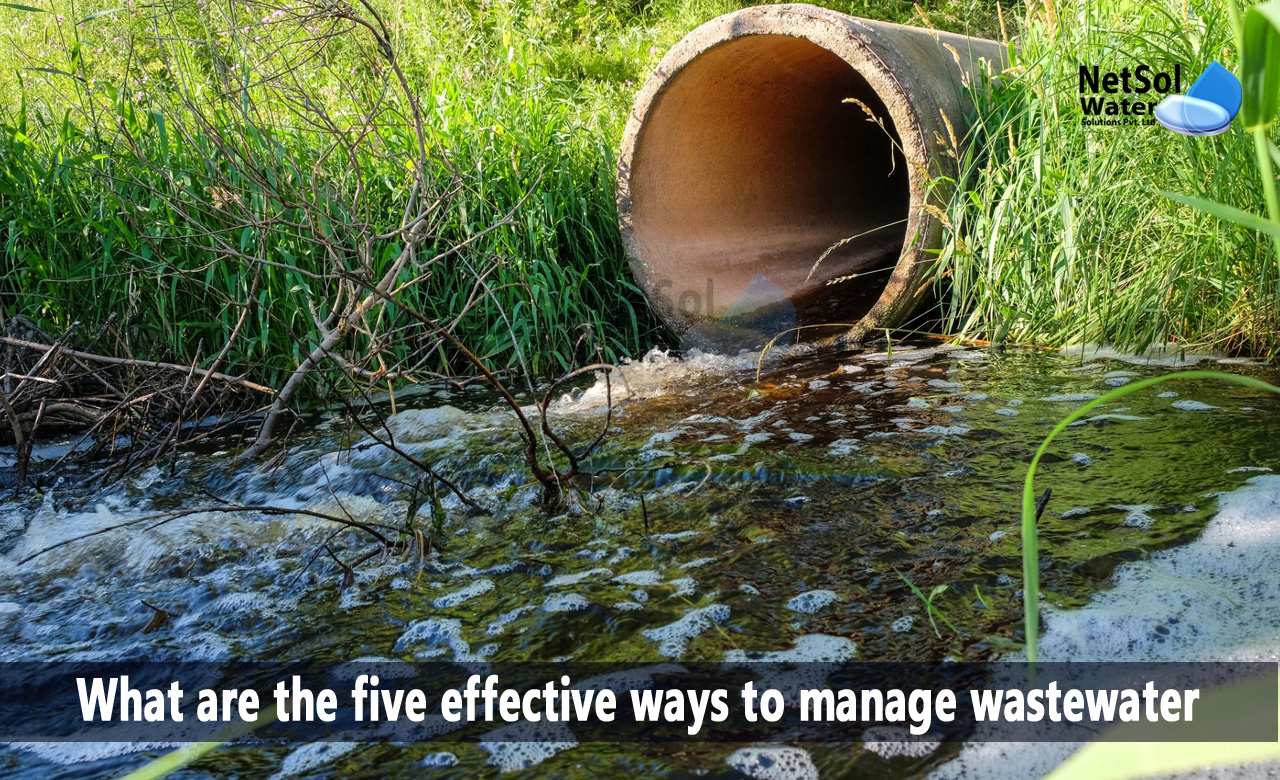Although it has a cost, the luxury of using many things to make our lives more comfortable and convenient is part of our modern way of life. Wastewater, which can either be in the form of water trickling down the shower or runoff from wet roadways, is a typical result of our contemporary way of life.
This effluent cannot be used or consumed by humans. Thankfully, we can use wastewater treatment technology to filter and cleanse the wastewater, and make it useable by removing impurities like sewage and chemicals.
What are the five effective ways to manage wastewater?
1- Regulations and Permit Requirements
Informing your local sewer or environmental authority of your plans to release industrial wastewater, is the first step towards compliance.
The National Pollutant Discharge Elimination System (NPDES) pretreatment program compliance is under this person's purview. A permit application or notice of intent (NOI), which normally details the sources, traits, and volumetric flow of your industrial wastewater discharge, may be required by the local authorities.
2- Treating Water Physically
Physical techniques are utilized in this stage to purify the effluent. To remove the solids, procedures including screening, sedimentation, and skimming are performed. This procedure doesn't need any chemicals.
Sedimentation, the process of suspending the insoluble/heavy particles from the wastewater, is one of the main methods of physical wastewater treatment. You can separate the clear water when the insoluble stuff has settled to the bottom.
Aeration is a further practical physical water treatment method. This procedure involves passing air through the water in order to oxygenate it. The third technique, filtering, is used to eliminate all pollutants. To pass the wastewater and separate the pollutants and insoluble particles present in it, employ specialized filters.
The filter that is most frequently used is the sand filter. This technique also makes it simple to remove grease that may be present on the surface of some effluent.
3- Natural Water Purification
This breaks down the organic material in wastewater, such as soap, human waste, oils, and food, using a variety of biological processes. In biological treatment, microorganisms digest organic materials in the wastewater. It can be categorized into three groups:
1. Aerobic processes: Bacteria break down organic matter to produce carbon dioxide that plants can use. This method makes use of oxygen.
2. Anaerobic processes: In this case, the waste is fermented at a particular temperature. Anaerobic processes do not require oxygen.
3. Composting is a method of aerobic treatment that involves combining wastewater, with sawdust or other carbon sources.
Most of the particles in wastewater are eliminated during secondary treatment, although, some dissolved nutrients like nitrogen and phosphorus may still be present.
4- Chemical Treatment of Water
This treatment uses chemicals in water, as the name would imply. Chlorine, an oxidizing substance, is frequently used to destroy microorganisms that cause water to deteriorate by introducing pollutants.
Ozone is another oxidizing agent that is used to clean wastewater. In the process of neutralization, an acid or base is introduced to the water to raise the pH level to 7. Chemicals make the water pure by preventing germs from growing in it.
5- Sludge Removal
In this solid-liquid separation process, the solid phase must include the least amount of residual moisture feasible, and the separated liquid phase must contain the fewer amounts of solid particle residues.
Dewatering sludge from industrial wastewater or sewage plants is one example, where the quality of the center dictates the pollution load returned to the treatment facility, and the residual moisture in the dewatered solids determines disposal costs. You must reduce both. The solids are taken out of the wastewater using a centrifuge, or other solid-liquid separation device.
Conclusion
It's critical to adequately treat wastewater because of its significant negative effects on the environment. By treating wastewater, you not only save the organisms that live there, but also safeguard the environment as a whole.
What can we offer?
Since, wastewater composition varies, specialized wastewater management is required. Every project is different, and our experts at Netsol Water will assist you in selecting the most effective technique, for managing your wastewater.
We are a top provider of water treatment services in India, offering manufacturing services for WTP and WWTP. In an effort to save the environment, we also produce sewage treatment and effluent treatment facilities.
Netsol Water is Greater Noida-based leading water & wastewater treatment plant manufacturer. We are industry's most demanding company based on client review and work quality. We are known as best commercial RO plant manufacturers, industrial RO plant manufacturer, sewage treatment plant manufacturer, Water Softener Plant Manufacturers and effluent treatment plant manufacturers. Apart from this 24x7 customer support is our USP. Call on +91-9650608473, or write us at enquiry@netsolwater.com for any support, inquiry or product-purchase related query.



